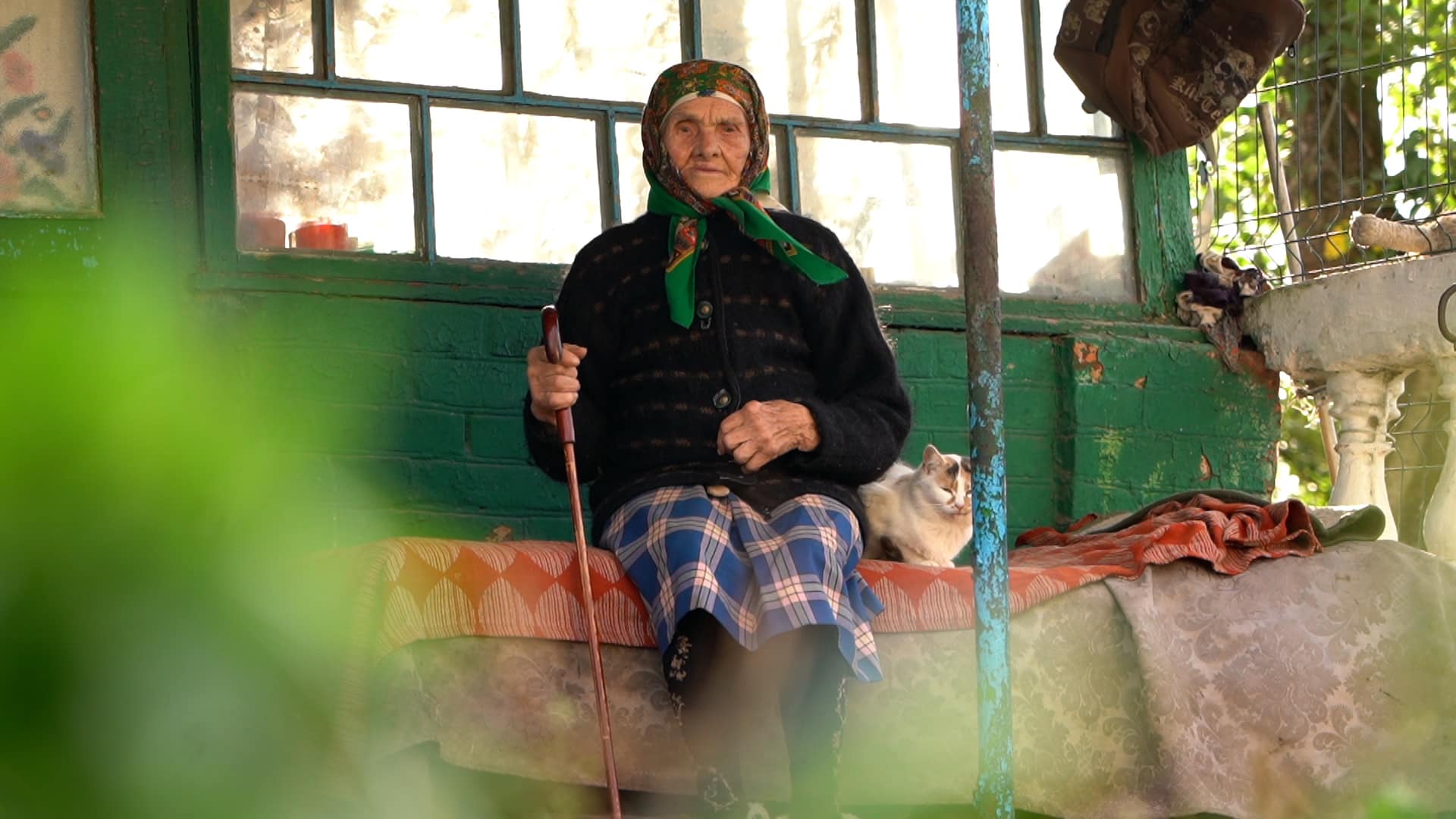The museum recorded the testimony of 96-year-old Hanna Domanska from Khmelnytskyi
This story appeared in our archive thanks to the concern for the history of one’s own family. In the autumn, Alla Domanska from Khmelnytskyi wrote to us in a message on Facebook. She uploaded several amateur videos of her neighbours and mother-in-law and their memories of the Holodomor. The heroes of the video, as our reader reported, have already passed away. But there is still her mother-in-law who can tell about those events.
Yulia Kotsur, head of the Holodomor oral history department, just had an opportunity to go to the village of Severyn in the Khmelnytskyi region and record the woman’s testimony. Even though Hanna Domanska is 96 years old, she remembers those events very well.
“My grandfather had four sons and four daughters – eight children. My grandfather built a hut for my father and gave him a little land. We moved into that hut, father and mother. And there were already two of us: my brother was two years old, and I was five. And we had stayed there for maybe half a year, and that’s it – they started looking for kulaks. They found half the village! And they started evicting everyone. My grandfather and grandmother – a truck came up, and they also had a daughter who was younger – 15 years old. So they left the house and went [in what they were wearing].
And the father was taken all the way to the north. I even know the address because my father wrote to me later: Murmansk railway, Medhora station, Daniilovka post office. He says: they brought them there, they brought them to the barrack, they caught up with a lot of them, such a big building, no light, nothing… And since the father and uncle were evicted, the family must go there too. They ordered: get ready, the truck will come. When they arrived, the mother was dying. After giving birth, the mother had a cold… This is what one says: “She’s just pretending, she’s not weak.” They brought the doctor to the mother, and the doctor looked and waved his hand. And they left… And they left us with this aunt. My mother died, and my brother died.
Patronage was created for orphans. And we were not accepted in this patronage because we were kulaks!
A lot of people died out… People were lying around: you were going, some were lying there, some were sitting there lifeless. Who hid them there? They were thrown away like firewood. And that’s all – they were covered with soil. There was no dog, no cat, people were eaten. This is the fear of God… I don’t know how I survived.
There is nothing worse than hunger: a person is like an animal… Nothing is nice because you see nothing and hear nothing. All that matters is that there is something to eat,…
My aunt would go to Chorna or Moskalivka and exchange some millet for soup. And along the way, they would climb out, take away and rip off. My aunt took it and twisted it in her braids… She came back and cried, telling me they had stopped her, put her down, and taken the millet out of the braids. And if you brought a handkerchief, they would give you two potatoes or a piece of bread…”
This impressive story of 96-year-old Hanna Domanska was recorded by the staff of the oral history department together with the journalists of Deutsche Welle in the village of Severyn in Khmelnytskyi. She was the only survivor of the Holodomor in her family: her mother and two brothers (one of them a newborn) died. The father also did not return from exile – during the Second World War, he went to the front, where he died. Out of the whole large family, only Aunt Sekleta, the youngest daughter of her grandparents, who was 15 years old at the dekulakization time, returned to Ukraine. She had escaped from Siberia and had been walking home for three years…
The entire story of eyewitness Hanna Domanska will soon be available on our online resource “Testimony”.
We bring to your attention the plot of Deutsche Welle with a story by Hanna Domanska, as well as a text version in Ukrainian, English, German, Spanish, Polish, Portuguese and Serbian.
